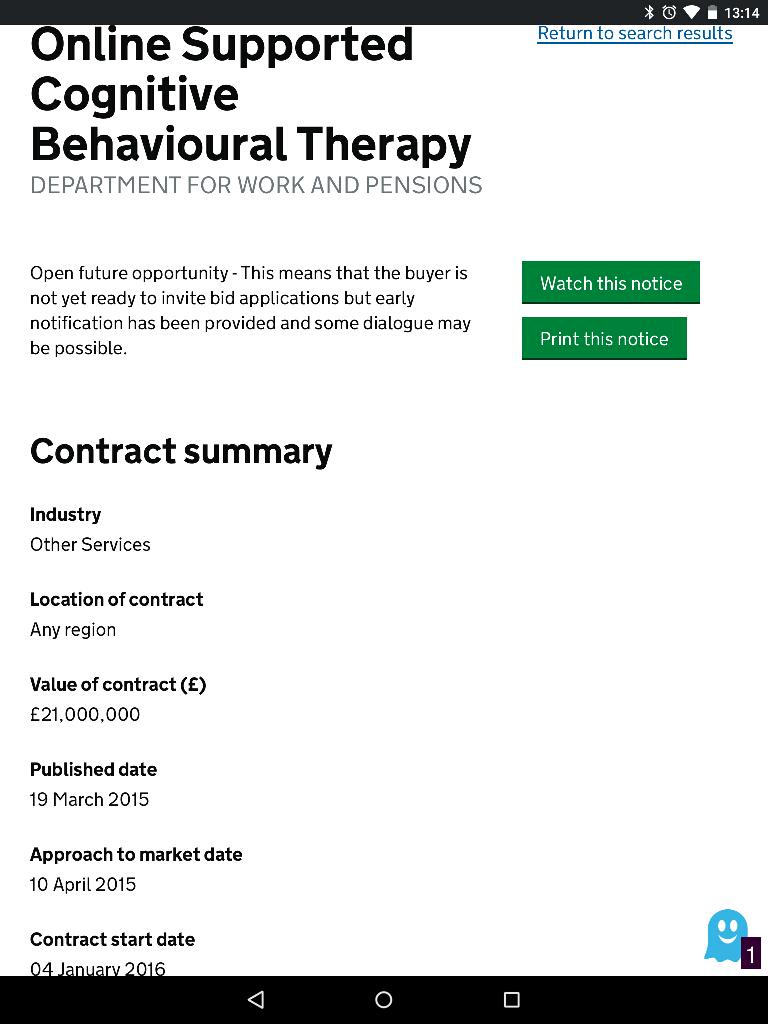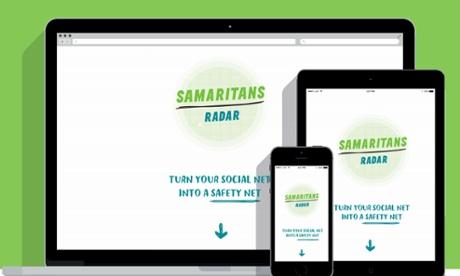A Mental Health task force set up by Nick Clegg has decided to subject people on benefits to mental health treatment at the Job Centre.
Out of all the possible environments for mental health treatment, the Job Centre could the worst.
The treatment will take the form of talking therapy and computer-based Cognitive Behavioural Therapy. A posting on the governments’s Contracts Finder website reveals that the DWP intend to spend £21 million on the online CBT. It is not clear how much they intend to spend on human therapists, where they think they can get them, or whether they will actually have training and experience to do the job.
There are so many problems with this scheme that it is hard to know where to start. The biggest problem I can see is that there can be no meaningful consent to treatment in the context of the Job Centre. Where once the Job Centre was there to help people to find a job, these days it is more known for ruthless sanctions and cutting off benefits for whatever trivial excuse they can come up with. If Job Centre staff tell someone that they need mental health treatment it will be backed up with words such as “your benefits may be affected if you do not attend” which is a barely-veiled threat that they apply to most “voluntary” tasks that they inflict on people.
The regime of sanctions and workfare means that the Job Centre is a direct cause of much mental illness among people on benefits. I cannot see anyone wanting to reveal this to any therapist in the Job Centre even if absolute confidentiallity is promised. There is too much danger of it leaking to vindictive staff who are eager to hit their targets for sanctions.
Computer-based CBT could be even worse. CBT does not work for everyone and there is a chance that staff will use failure to get better as an indication that someone is not trying, and an excuse to cut their benefits. CBT often makes people worse before they get better and it is not something that should be done in a public place where there is little chance of privacy. It could leave people in a raw emotional state and vulnerable while out in public, or the setting may prevent people from engaging at all. Indeed, the suspicion will be that Job Centre staff will monitor progress just like they monitor the Universal Job Match system.Whether true or not, that will be a barrier to a lot of people.
This whole scheme seems to have been set up with the primary aim not of improving mental health, but of getting people in to a job. There is no indication of how the DWP will treat people whose mental health does not improve enough to get a job, or even get worse. Clegg’s mental health task force seems to have no clue about the reality of unemployment, poverty or illness. Had they asked anyone in this situation they would have been told that this plan will be damaging, not helpful.
If there is money available - and seemingly, there is at least £57 million available - why on earth isn’t it being spent within the NHS to undo some of the savage cuts that have taken place? Lots of people including myself have been desperate to get proper talking therapy from the NHS for years but unable to do so. Tories and LibDems seem desperate to force unsuitable treatment without consent on people on benefits instead of properly funding NHS services. This scheme is a useless bandage on the gaping wound inflicted by this government and it will do more damage than it helps repair.
Related Links
Clegg announces plan for job centre mental health treatment scheme
Nick Clegg holds first meeting of mental health taskforce
Contracts Finder: Online Supported Cognitive Behavioural Therapy


